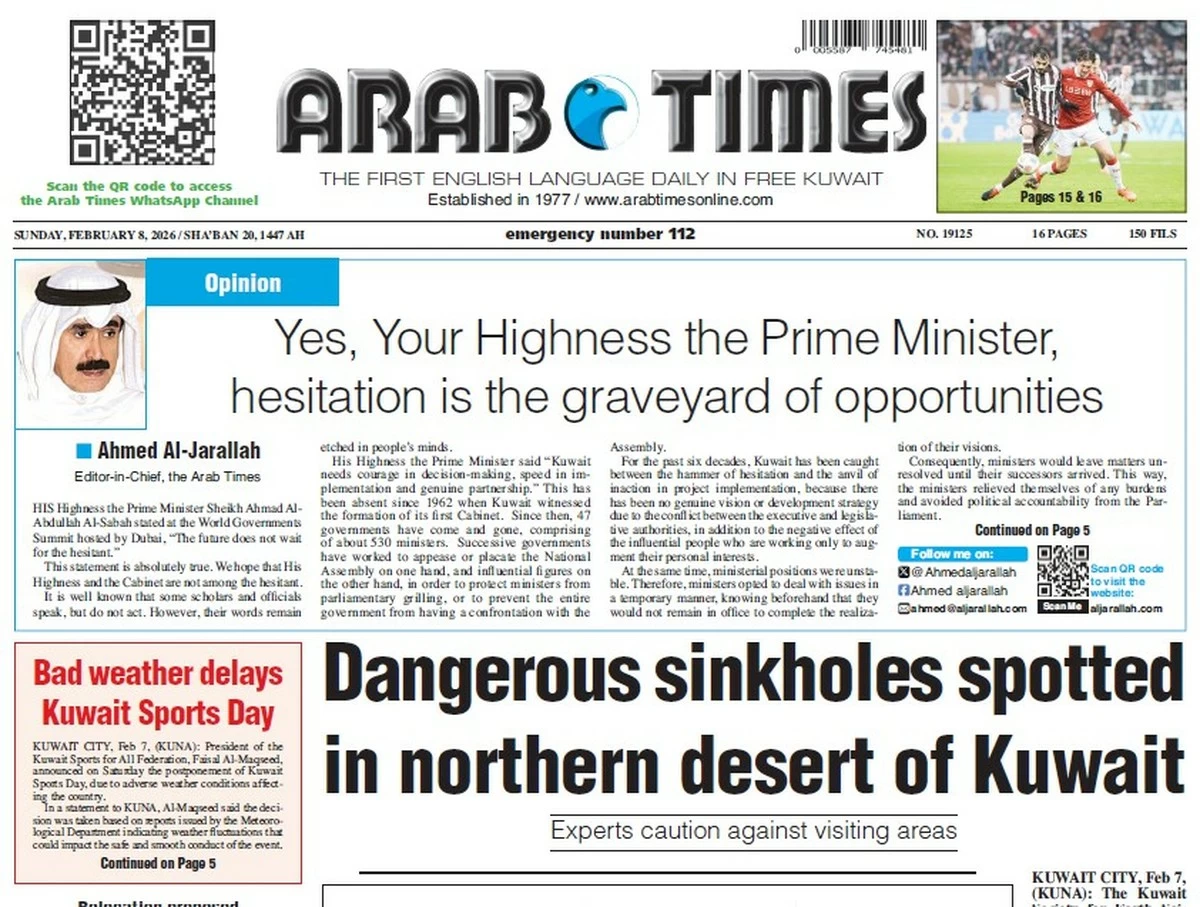11/05/2025
11/05/2025
ZAKAT in Islam is governed by specific criteria and guidelines. The distribution of zakat to beneficiaries follows a specific order of priority, which includes: poor relatives, the needy, those employed to collect it (administrators), new Muslims, the emancipation of slaves, individuals in debt, those striving in the cause of Allah, and stranded travelers. Over time, this system has seen changes in response to societal changes, national development, and evolving individual circumstances. Nevertheless, certain core principles remain unchanged, such as prioritizing zakat for relatives, which in Kuwait’s context includes needy families and individuals imprisoned for financial, civil, or misdemeanor cases. However, over the past four decades, the emergence of political Islamist groups and the misuse of donations for purposes beyond their intended goals have led to growing chaos. Financial aid has increasingly been directed to other countries by certain groups seeking to promote their ideologies and attract followers to extremist movements.
Meanwhile, those in need closer to home, who should be prioritized, are often deprived of assistance. This situation has distorted the image of Kuwaiti charitable efforts in the eyes of the world. At the same time, there are approximately 120,000 citizens facing arrest warrants, travel bans, or criminal court cases some of whom are in prison, including mothers and housewives who were deceived. I have repeatedly stressed that these individuals are the most deserving of donations, as they are our closest in terms of kinship, neighborliness, citizenship, and other social considerations. Debtors are indeed entitled to benefit from zakat funds. I commend the campaign launched by the Minister of Social Affairs to support debtors; however, the campaign is insufficient, as it is seasonal and lacks permanence.
Meanwhile, the Zakat House oversees projects that invest the enormous sums donated annually by individuals and companies. The problem lies in how these funds are distributed. Rather than directing them toward transnational charitable projects, it would be better to allocate them within Kuwait. There are tens of thousands of citizens who wish to pay zakat sincerely, seeking reward from God, and not wanting their donations to end up serving specific political agendas. Many charitable societies, committees, and friendship organizations in Kuwait continue to direct donation funds abroad, while debtors and the needy within the country are excluded from support. The growing number of individuals who have had their Kuwaiti citizenship revoked, including mothers and widows of Kuwaiti citizens, stresses the urgent need to prioritize the distribution of zakat funds within Kuwait.
Many of these individuals are in desperate need of assistance to sustain their lives. What is striking is the misuse of zakat funds, as a large portion is being spent on the comfort and privileges of the officials tasked with collecting and managing the funds. Lavish office furnishings and travel expenses often take priority, despite regulations stating that no more than 20 percent of zakat funds should be allocated for administrative purposes.
Meanwhile, many truly needy individuals receive only minimal assistance after navigating a difficult and often humiliating process. In stark contrast, the Zakat House grants large sums, ranging from KD 3,000 to KD 5,000, to individuals with connections. This imbalance is akin to offering a starving person a mere morsel while laying out full platters of food for someone already well-fed. Laws and legislation enacted under pressure from wealthy and influential individuals seeking to keep citizens under the hammer of poverty have only worsened the situation. Official state institutions have become some kind of agents collecting money on behalf of usurers and financial tycoons, something unheard of anywhere else in the world but in Kuwait. The Minister of Social Affairs made a commendable decision by halting the collection of donations through charitable committees, as directing these funds to support those in need within Kuwait is now more effective. However, this does not absolve the state of its responsibility to solve the issues of debtors and the needy. A permanent campaign must be activated to end this crisis and protect many segments of society from disintegration. Achieving this goal is possible with strong will and genuine commitment.
By Ahmed Al-Jarallah
Editor-in-Chief, the Arab Times



